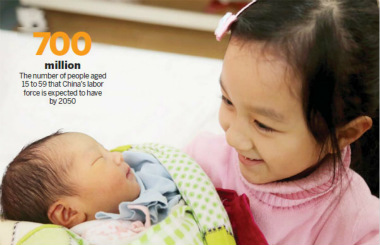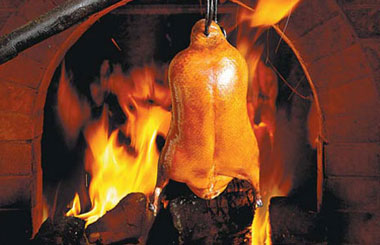Companies acknowledge depth of public feeling
Updated: 2016-01-18 09:18
By SHAN JUAN/WANG XIAODONG(China Daily)
|
|||||||||||
Major Chinese airlines were among the first businesses to join the efforts to slow the trade in laboratory animals. Many have acknowledged the turning tide of global public opinion against the use of primates in experiments and now refuse to transport them.
In March 2014, China Southern Airlines banned the shipment of live primates for laboratory experiments, although it had previously transported animals, mainly monkeys, to facilities in the United States and European Union.
The move followed a decision by China Eastern Airlines, which stopped transporting lab-use primates in early 2013.
Worldwide, animal welfare groups, such as People for the Ethical Treatment of Animals, have put pressure on airlines via campaigns calling on them to cease carrying primates for use in experiments.
In 2012, FedEx and UPS, the world's largest carriers of air freight, announced that they would no longer transport mammals for laboratory use.
Yue Bingfei, deputy director of the experimental animal division of the National Institutes for Food and Drug Control, said moving the animals from one side of the world to the other and ensuring they arrive at laboratories in good condition is a complicated procedure, involving varied logistics and a number of other factors.
According to Animal Research in China, an online journal, the increasingly strict rules and management related to the breeding and testing of animals in Western countries have resulted in many foreign research institutions outsourcing animal-based research to China.
From the late 1980s, companies wishing to export lab animals from China had to obtain approval from the State Scientific and Technological Commission, but that responsibility was handed over to provincial science and technology administrations in 2013. Companies must now provide documents, such as breeding permits, quality testing reports and purchasers' contracts, before approval is granted.
China is a major supplier of the more than 100,000 monkeys required for laboratory use across the globe every year, and areas such as the Guangxi Zhuang autonomous region and Guangdong province are home to the country's largest breeding centers for monkeys used in laboratory experiments.
Animal breeders grow profits from research
In 2014, the revenue of Beijing Prima Biotech, one of North China's biggest breeding centers for primates used in laboratory tests, reached 14.8 million yuan ($2.2 million), a rise of nearly 30 percent year-on-year.
In August, the company was listed on the National Equities Exchange and Quotations-a securities' trading venue that's often known as the New Third Board-making it the first Chinese company specializing in the breeding of laboratory animals to list on the board.
The company raises 4,000 monkeys every year, including rhesus monkeys and long-tailed macaques. It also sells about 200 beagles a year.
The animals, which are all pure breeds, are mostly sold to hospitals, universities, institutes, and biological and pharmaceutical companies.
The rhesus monkeys are mostly used in research into the nervous system, diseases that afflict the elderly, organ transplants and eye conditions.
Long-tailed macaques are usually used in research into infectious diseases, drugs and poisons, and the study of reproductive system, while beagles are used in work to study organ transplants, brain surgery and cardiac diseases.
Today's Top News
Chinese firms making inroads in UK
Value addition
IS claims Jakarta attack, targets Indonesia for 1st time
Chinese people most optimistic in global survey
COSCO offers 700m euros for Greece’s Piraeus Port
Istanbul bomber entered Turkey as refugee
Bird flu case confirmed in eastern Scotland
Cosco poised for Piraeus control
Hot Topics
Lunar probe , China growth forecasts, Emission rules get tougher, China seen through 'colored lens', International board,
Editor's Picks

|

|

|

|

|

|






